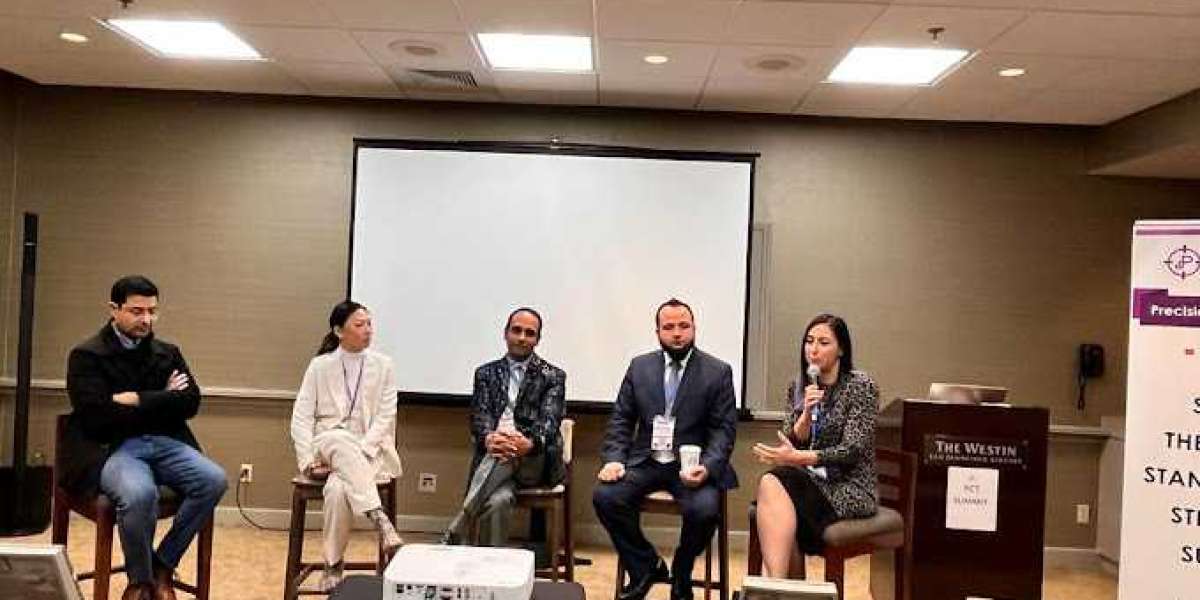In the dynamic world of pharmaceuticals, staying at the forefront of drug development is crucial. Drug development conferences have become vital platforms for showcasing pioneering research, discussing regulatory updates, and exploring innovative solutions to industry challenges. These conferences bring together scientists, researchers, industry professionals, and regulatory authorities to share knowledge and collaborate on advancing drug development. The role of pharmaceutical event management is pivotal in organizing these events, ensuring they are impactful and well-coordinated.
The Significance of Drug Development Conferences
Drug development conferences serve multiple purposes. They provide a venue for presenting the latest research findings, discussing regulatory requirements, and exploring new technologies that can streamline the drug development process. These conferences also offer networking opportunities, allowing professionals from various sectors of the pharmaceutical industry to connect and collaborate.
The primary goal of these conferences is to advance the field of drug development by fostering innovation and collaboration. Topics such as clinical trials, regulatory affairs, personalized medicine, and biotechnology are commonly discussed. These discussions are essential for identifying new opportunities, addressing challenges, and developing strategies that enhance the efficiency and effectiveness of drug development.
Key Innovations Highlighted at Drug Development Conferences
Several key innovations are typically highlighted at drug development conferences. These include advancements in artificial intelligence (AI), biotechnology, personalized medicine, and regulatory science.
Artificial Intelligence and Machine Learning
AI and machine learning are revolutionizing drug development by enabling the analysis of vast datasets to identify potential drug candidates, predict clinical trial outcomes, and optimize drug formulations. AI algorithms can analyze genetic, clinical, and molecular data to identify patterns that may not be evident to human researchers. This capability accelerates the drug discovery process and improves the accuracy of predictions regarding drug efficacy and safety.
At drug development conferences, experts present case studies and real-world applications of AI in drug development. For example, AI-powered platforms can screen millions of compounds in a fraction of the time required by traditional methods, significantly speeding up the drug discovery process. Additionally, machine learning models can analyze clinical trial data to identify factors that influence patient responses, enabling the development of more effective and personalized treatments.
Biotechnology and Advanced Therapies
Biotechnology is a driving force behind many of the latest advancements in drug development. Techniques such as CRISPR gene editing, stem cell therapy, and monoclonal antibodies are opening new avenues for treating diseases that were previously considered untreatable. Drug development conferences provide a platform for discussing the latest breakthroughs in biotechnology and their potential applications in medicine.
Experts present case studies demonstrating the successful development and application of biotechnological therapies. These sessions offer insights into the research methodologies, clinical trials, and regulatory considerations involved in bringing these advanced therapies to market. Attendees can learn about the challenges and opportunities associated with developing biotechnological drugs, from initial research to commercialization.
Personalized Medicine
Personalized medicine is transforming the pharmaceutical industry by tailoring treatments to the genetic and molecular profiles of individual patients. Advances in genomics and bioinformatics are enabling the development of personalized therapies that are more effective and have fewer side effects. Drug development conferences highlight the latest research and innovations in personalized medicine.
Discussions at these conferences focus on the integration of genomic data into drug development, the identification of biomarkers for patient stratification, and the development of companion diagnostics. Experts share case studies and best practices for implementing personalized medicine approaches in clinical trials and treatment protocols. By fostering collaboration between researchers, clinicians, and industry professionals, drug development conferences help advance the field of personalized medicine.
Regulatory Science and Compliance
Navigating the regulatory landscape is a critical aspect of drug development. Ensuring compliance with regulatory requirements is essential for bringing new drugs to market and maintaining patient safety. Drug development conferences provide a platform for discussing the latest regulatory updates and best practices for compliance.
Regulatory experts and representatives from regulatory bodies such as the FDA and EMA often participate in these conferences. They provide insights into the regulatory approval process, highlight common challenges, and offer guidance on ensuring compliance. These sessions are invaluable for pharmaceutical companies looking to streamline their regulatory strategies and accelerate the approval of new drugs.
The Role of Pharmaceutical Event Management Companies
Organizing successful drug development conferences requires meticulous planning and execution. Pharmaceutical event management companies are instrumental in this process, handling everything from venue selection and logistics to marketing and attendee engagement. Their expertise ensures that these conferences are well-organized and deliver maximum value to participants.
Pharmaceutical event management companies collaborate closely with sponsors, exhibitors, and speakers to create a comprehensive agenda that addresses the most pressing issues and trends in drug development. They also facilitate networking opportunities, enabling attendees to connect, share knowledge, and establish partnerships. By managing the logistical aspects of these events, these companies allow industry professionals to focus on the substantive content and outcomes of the conferences.
Real-World Impact of Drug Development Conferences
Several real-world case studies presented at drug development conferences illustrate the tangible impact these events can have. For instance, a recent conference facilitated a partnership between a pharmaceutical company and a biotechnology firm to develop a new gene therapy for a rare genetic disorder. This collaboration led to the successful development and clinical trial of the therapy, significantly improving patient outcomes.
Another example involved a collaboration between academic researchers and a pharmaceutical company to develop a personalized cancer treatment. The initial findings were presented at a conference, attracting interest from other industry players and resulting in additional funding and support. This partnership advanced the research from the laboratory to clinical trials, demonstrating the power of collaboration fostered by these conferences.
Future Directions for Drug Development Conferences
Looking ahead, drug development conferences are poised to evolve with the industry. One significant trend is the increasing incorporation of virtual and hybrid formats, allowing for greater global participation. These formats make it possible for researchers and professionals from around the world to attend and contribute, regardless of geographic constraints.
Emerging topics likely to feature prominently in future conferences include the use of advanced analytics for drug development, the integration of digital health technologies, and the adoption of sustainability principles in pharmaceutical research. As these technologies and practices develop, drug development conferences will continue to be critical platforms for disseminating knowledge and driving innovation.
Conclusion
Drug development conferences are essential for advancing the field of pharmaceuticals. These events provide a collaborative environment where breakthrough innovations are showcased, discussed, and implemented. The involvement of pharmaceutical event management companies ensures that these conferences are well-organized and impactful, offering maximum value to all participants.
As the pharmaceutical industry continues to evolve, these conferences will remain vital for fostering innovation, collaboration, and the adoption of new technologies.
Frequently Asked Questions
What are the main goals of drug development conferences?
The main goals are to showcase cutting-edge research, discuss regulatory updates, explore new technologies, and facilitate collaboration among industry professionals.
How do AI and machine learning contribute to drug development?
AI and machine learning enable the analysis of vast datasets to identify potential drug candidates, predict clinical trial outcomes, and optimize drug formulations, significantly accelerating the drug discovery process.
What role does biotechnology play in drug development?
Biotechnology drives many of the latest advancements in drug development, including gene editing, stem cell therapy, and monoclonal antibodies, offering new treatment options for previously untreatable diseases.
How is personalized medicine transforming drug development?
Personalized medicine tailors treatments to the genetic and molecular profiles of individual patients, improving efficacy and reducing side effects. Conferences highlight the latest research and innovations in this field.
Why is regulatory compliance important in drug development?
Ensuring regulatory compliance is essential for bringing new drugs to market and maintaining patient safety. Conferences provide valuable insights and strategies for navigating the regulatory landscape.
Why are pharmaceutical event management companies important for drug development conferences?
Pharmaceutical event management companies handle logistics, marketing, and organization, ensuring that conferences run smoothly and provide valuable networking and learning opportunities for participants.
Can you provide examples of successful collaborations that emerged from drug development conferences?
Examples include partnerships between pharmaceutical companies and biotechnology firms to develop gene therapies and collaborations between academic researchers and industry professionals to advance personalized cancer treatments.
What future trends are expected in drug development conferences?
Future trends include virtual and hybrid formats for greater global participation, the use of advanced analytics for drug development, the integration of digital health technologies, and the adoption of sustainability principles in pharmaceutical research.








